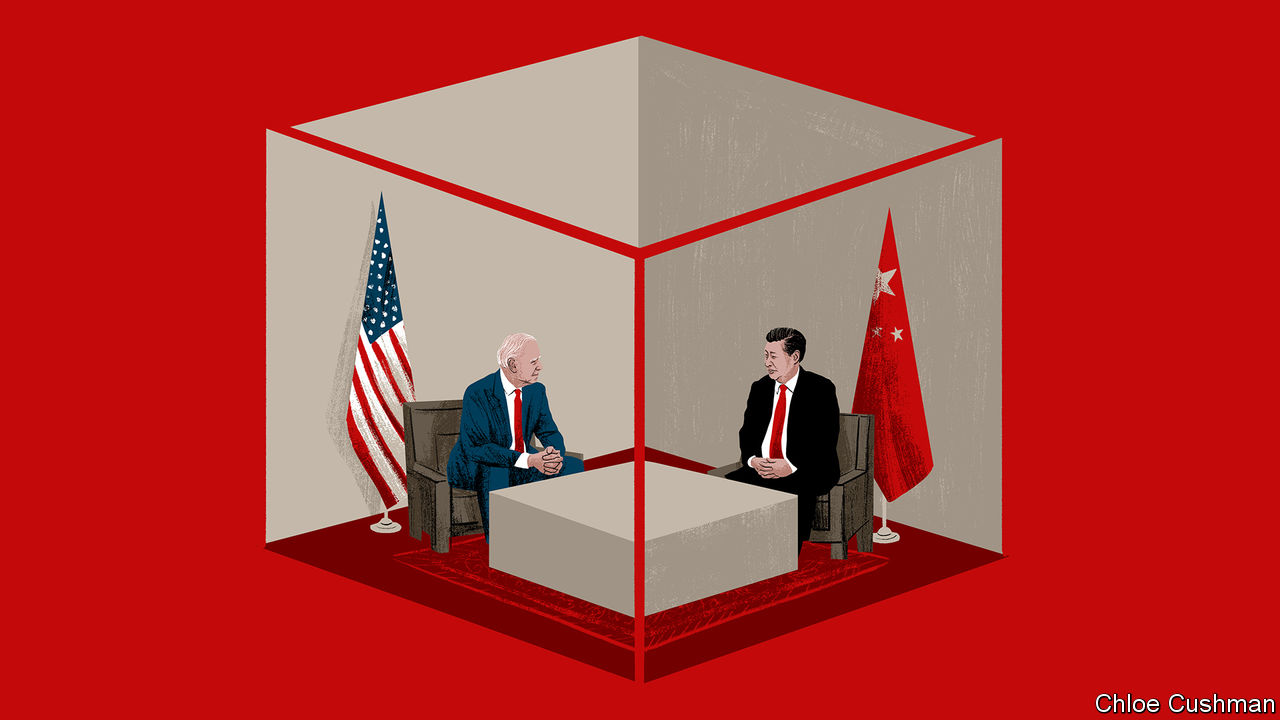- cross-posted to:
- [email protected]
- cross-posted to:
- [email protected]
A tactical move to boost China’s economic and diplomatic interests
When invited to sum up the state of China’s relations with America, a close observer in Beijing drops a surprising literary reference, comparing the countries to damned souls sent to Hell in “Huis Clos” (“No Exit”), a play by Jean-Paul Sartre. In the gloomy Frenchman’s masterwork, Hell turns out to be an antique-filled sitting room peopled by unlikeable strangers. These wretches come to realise that they must endure each other’s company, and mutual contempt, for all eternity. The afterlife needs no red-hot pokers to be a torment, gasps one of Sartre’s sinners: “Hell is—other people!” The reference to existential angst by the observer in Beijing is more than startling. It is meant to be encouraging.
The case for optimism runs as follows. For two years Sino-American relations were dangerously dysfunctional. To protest, successively, against a visit to Taiwan by the then-speaker of the House of Representatives, Nancy Pelosi, and America’s shooting down of a Chinese spy balloon, China suspended high-level contacts for months. Both governments now accept that they are doomed to manage differences responsibly, as the world’s greatest economic and military powers, largest emitters of greenhouse gases and interdependent trading partners. That duty to co-exist is dictated by the judgment of history and by the expectations of other countries—even if leaders in Beijing and Washington have come to believe that their core value systems, and many of their most cherished ambitions, are incompatible.



Wall Street Journal: “Taiwan’s main opposition Nationalist Party, also known as the Kuomintang, struck a surprise deal last week with the Taiwan People’s Party to unite in a coalition ticket favoring friendlier ties with China that political analysts said had a real shot of coming out on top in the island’s presidential contest in January.”
“The agreement began to unravel almost immediately after it was announced and appeared to fully fall apart at a press conference on Thursday evening, during which the parties’ candidates traded veiled insults with each other and another opposition candidate, Foxconn founder Terry Gou, before walking out in front of several dozen reporters."